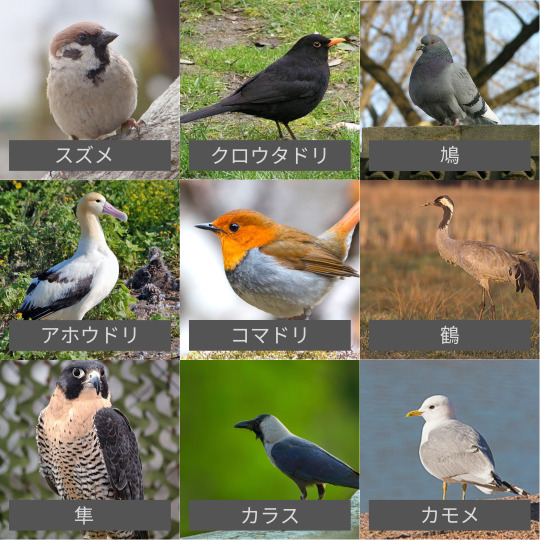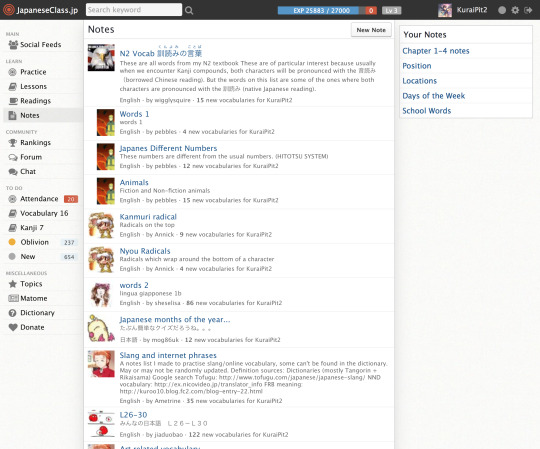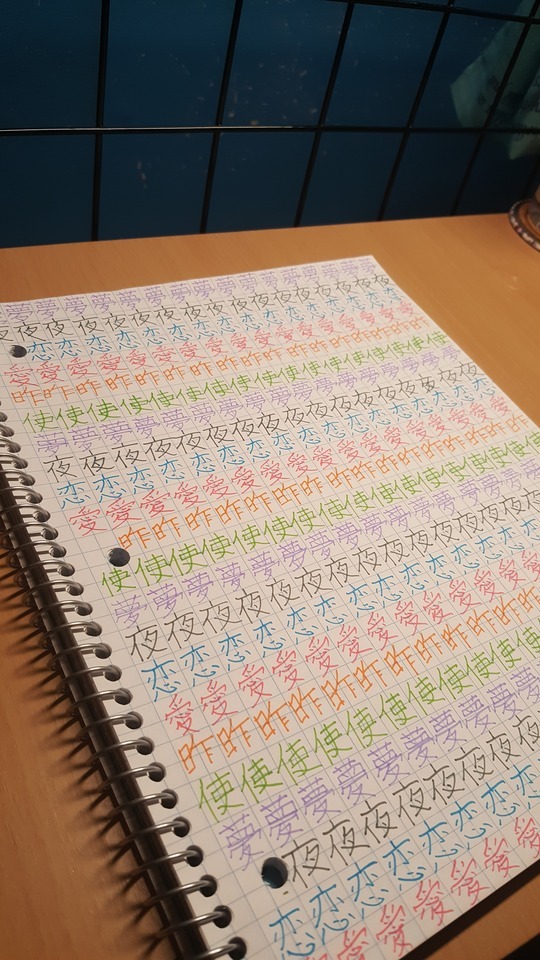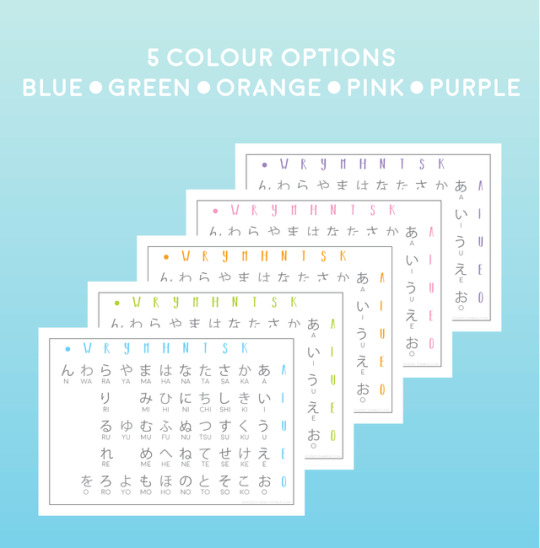#jpnstudynet
Explore tagged Tumblr posts
Text
Vocab pt. 1 | 「伝える力」が伸びる! 12歳までに知っておきたい語彙力図鑑


I've recently started reading 「伝える力」が伸びる! 12歳までに知っておきたい語彙力図鑑 (or what I only refer to as "Words You Ought to Know as a 12-year old") as a means to up my vocab game before the JLPT.
I'll probably post a review about the book once I actually finish it.
But in the meantime, here are some of the words that I learned just from reading the sections about how to use the book and all 5 of it's sections. I was quite pleased at the amount of words that I've already learned (and how many of them were N2 words).
語彙力 (ごいりょく)- (the extent of) one's vocabulary
図鑑 (ずかん)- field guide; illustrated reference book
目指す (めざす)- to aim at (for; to do; to become); to try for
各 (かく)- each, every, all [prefix]
繰り返す (くりかえす)- to repeat; to do over again
基礎 (きそ)- foundation; basis
言い換える (いいかえる)- to say in other words; to put another way; to rephrase
言い換え (いいかえ)- putting in other words; paraphrase; rephrasing; rewording
状況 (じょうきょう)- state of affairs; circumstances; situations; conditions
鍛える (きたえる)- to drill; to train; to discipline; to forge; to temper
変換 (へんかん)- change; transformation; conversion
観察眼 (かんさつがん)- observing eye
目の付け所 (めのつけどころ)- focus of one's attention; what one is looking for; viewpoint; point one is trying to make
文豪 (ぶんごう)- literary master
候補 (こうほ)- candidate; contender; prospect; pick; choice; list
まつわる- to be related; to concern; to be associated with
登場 (とうじょう)- entrance; appearance; arrival
表現 (ひょうげん)- expression; representation; description; representation (of a group)
解決 (かいけつ)- settlement; resolution; solution
ワンパターン - following a single pattern; conforming to the same pattern; repetitive; stereotyped; predictable [Wasei-eigo]
Hopefully, I'll be able to consistently post some of the vocab lists that I continue to compile for this. I'm in the Step 1 section of the book where it gives you synonyms and explains the connotations behind them/situations in which to use them. The first section I read was for やばい~
#vocab#reading comprehension#jlpt prep#jlpt n2#mine#onigiristudies#japanese#look toki#japanese vocabulary#japanese vocab#japanese vocab list#learn japanese#study japanese#jpnstudynet#polyglot#jlpt#jlpt n3
92 notes
·
View notes
Text

二月 ・ 鳥
February - Birds
スズメ ・ sparrow
クロウタドリ ・ blackbird
鳩 ・ ハト ・ pigeon
アホウドリ ・ albatross
コマドリ ・ robin
鶴 ・ ツル ・ crane
隼 ・ ハヤブサ ・ falcon
カラス ・ crow/corvid
カモメ ・ seagull
① 能ある鷹は爪を隠す ・ のう ある たか は つめ を かくす
A skilled hawk hides its talons; the person who knows most often says the least; one shouldn't show off
② 鳥曇り ・ とりぐもり
The cloudy sky that appears when migrating birds that stayed for the winter and autumn in Japan leave to go north
③ 篭鳥恋雲 ・ ろうちょうれんうん
Longing for freedom when tied down; a caged bird's longing for the open sky
111 notes
·
View notes
Text
Practicing kanji, and...

... my tiny baby く matched up perfectly with the strokes on my 建
I couldn't believe my eyes 😆
9 notes
·
View notes
Note
Hi Tina, I just came across your Japan network, and I couldn't believe there was actually a network for people who just really enjoy everything Japanese! I noticed though that the page said it's closed atm and I was wondering if it was reopening anytime, bc I'd be super interested in joining!
Hi, yes I also can’t believe how many people actually joined; it was so crazy that I had to stop for a while from the overwhelming amount of applications. So crazy I went MIA for a year or so ^^;; But we’re back baby!! I am thinking of reopening very soon, maybe in the next week or so? I am thinking of revamping the place a little and perhaps starting a discord. So glad you’re interested in joining and can’t wait to see you :DD (sorry for late reply!)
5 notes
·
View notes
Text
Random Japanese Verbs #1
This is the beginning of a list of verbs that will be included on my Japanese final for Levels 3 / 4.
I’m still a beginner, so if there are any mistakes, please correct me! Also, some of these are generally written without kanji, but I thought I’d still include the kanji.
出来る(できる)to be able to do
怒る(おこる)to become angry
答える(こたえる)to answer
��謝する(かんしゃする)to be grateful / to appreciate
着く(つく)to arrive
聞く(きく)to hear / to listen
質問する(しつもんする)to ask a question
付ける(つける)to attach
いる to be (animate things like people and animals)
ある to be (inanimate objects like desks and books)
成る(なる)to become
始まる(はじまる)to begin
生まれる(うまれる)to be born
借りる(かりる)to borrow
連れて来る(つれてくる)to bring someone
持って来る(もってくる)to bring something
買う(かう)to buy
聞こえる(きこえる)to be audible
見える(みえる)to be visible
気を付ける(きをつける)to be careful
風邪を引く(かぜをひく)to catch a cold
応援する(おうえんする)to cheer
噛む(かむ)to chew
片付ける(かたづける)to straighten up (i.e. a room)
掃除する(そうじする)to clean
閉める(しめる)to close
来る(くる)to come
比べる(くらべる)to compare
渡る(わたる)to cross (i.e. a bridge)
混む(こむ��to be crowded
泣く(なく)to cry
切る(きる)to cut
死ぬ(しぬ)to die
食事する(しょくじする)to dine
漬ける(つける)to dip
離婚する(りこんする)to divorce
する to do
ホームステイをする to do a home stay
自己紹介する(じこしょうかいする)to do a self-introduction
頑張る(がんばる)to do one’s best
書く(かく)to write / to draw
飲む(のむ)to drink
運転する(うんてんする)to drive
食べる(たべる)to eat
勤める(つとめる)to be employed (at)
739 notes
·
View notes
Photo

#Japanese#Japanese Langblr#Langblr#日本語#studyblr#studyspo#mine#mine:japanese#mine:notes#みんなの日本語#独学#self study#studyquill#learnjp#jpnstudynet#emmastudies#hinodestudies
421 notes
·
View notes
Photo

For once in my life, quizzes are saving my Japanese grade. On other news, I think I’ve written the same core conversation like 6 times
#mine#Japanese#studyblr#langblr#Japanese studyblr#Japanese langblr#jpnstudynet#jpnlangblrnet#langblrnet#scholarcord
79 notes
·
View notes
Text
ac:pc christmas event vocab list

Let’s all pretend the event isn’t already almost over, mmkay?
クリスマスのもと = candy cane (lit. ‘source/origin of christmas) (see pt.2 of my ac:pc vocab lists if you’re wondering why the japanese translations for crafting materials are so odd) サンタのぼうし = santa hat サンタのスカート = santa skirt サンタのジャケット = santa jacket サンタのズボン = santa pants サンタのブーツ = santa boots
クリスマスチェックのソファL = jingle checked sofa (lit. christmas check sofa L) おおきなクリスマスケーキ = big festive cake (lit. big christmas cake) クリスマスプレゼントのやま = mountain of presents (lit. mountain of christmas presents) クリスマスチェックのベッド = jingle checked bed (lit. christmas check bed) クリスマスチェックのラグ = jingle checked rug (lit. christmas check rug) クリスマスなついたて = jingle fence (lit. christmas partitioning screen) クリスマスなスノードーム = jingle snow globe (lit. christmas snow dome) リボンのクリスマスツリ = festive bow tree (lit. ribbon christmas tree) サンタぼうのがいとう = festive streetlight (lit. santa hat street light) クリスマスのだんろ = festive fireplace (lit. christmas fireplace) 3だにゅきだるま = three-ball snowman (lit. 3 level snowman)
[item] をクラフトしてみよう = craft [item] (lit. let’s craft [item] ) どうぶつのおねがい��� [#] 回かなえよう = complete [#] requests for visiting animals (lit. lets fulfill an animals request [#] times)
#langblr#jpnstudynet#langblrnet#japanese language#japanese study#japanese vocabulary#mine#animal crossing#ac:pc
228 notes
·
View notes
Text
Resources: Japanese Class
When recommending resources, I always see the usual Duolingo, Memrise, and Genki. They are great, but I never see this one mentioned:
Japaneseclass.jp

This website offers SRS practice for kana, kanji, and vocabulary.
There are eight chapters for vocabulary and kanji. In total, you can learn 2,000 kanji and 2,300 vocabulary words from this resource alone.

If that isn’t enough, people often post their own notes and vocabulary words in the note section. Of course, you can always create your own through this feature.

Another neat thing about this website is the ranking system. Points can be earned through the attendance section or during vocabulary, kanji, and kana tests in the lessons section. This encourages people to learn as many new words as possible to get to the top.
I will admit that there are a few issues so far. For a while now, the social feed has been flooded with advertisements from bots. It’s easy enough to ignore if you don’t care for the social feed, but for those who would still like to interact with the community, the forum and chat are relatively active and have no bots.
I highly recommend this website for it organization of content and the sense of completion obtained for finishing each lesson. It is not to say that other SRS apps are not as competent, I just think that this website is worth trying out alongside other resources.
#resources#japanese resources#japanese class#studyblr#japanese studyblr#langblr#japanese langblr#japanese vocabulary#srs#jpnstudynet
312 notes
·
View notes
Text
NicoNico Slang (Part 1)
Hi everyone! Since this is my first post, I decided I'd post about something I've been interested in for a while: Japanese internet slang! And since I'm most familiar with NicoNico, that's what we'll use as a basis. 始めましょう!
1) 8888
You will see this ALOT. At the end of every video, many 8's will roll across the screen (in regular NicoNico fashion). The eights aren't just random numbers though, they actually mean applause! "Eight" in Japanese is prounounced as はち, so on NicoNico it becomes ぱちぱち, the Japanese sound effect for clapping!
2) DKDK
DKDK means "Doki Doki" ! The heart pounding feeling you get when someone does something amazing. I've seen this used when Utaite (NicoNico singers) sing an especially high note, or when Odorite (NicoNico dancers) dance really well!
3) KTKR
KTKR means Kitakore (キタコレ)! This is a super excited way to say "It's here!!" Or "It's arrived!". This can be used by a creator who gets a package they want to show off to viewers, or viewers who are excited to watch a long awaited video!
Hopefully next week, I'll post a longer list of words, but this is what I can do for now. I hope you learned from this! Thanks for reading! バイバイ!
107 notes
·
View notes
Photo



漢字をもう書いた(•-•)きれいだよね!
179 notes
·
View notes
Text
やばい Alternatives | Vocab
Step 1 of 「伝える力」 が伸びる! 12歳までに知っておきたい語彙力図鑑 focuses on teaching you synonyms for words you would typically use to describe your emotions. There are synonyms for words like やばい, エモい, and the like. This particular post will focus on the information that they've given about やばい。
The book also ranks the words' difficulty level, with 1 star being an "of course you know this" to 5 stars being "even adults probably don't know this and you're about to blow them away with your vocabulary and make them pull out their dictionary." Because of this, you may see words that you encountered quickly as a Japanese learner (that a native speaker 12 year old may not have encountered yet) and vice versa on the list below.


やばい
Because やばい is a word that can be used to express nearly any emotion (much like how OMG can be used in many contexts in American English), the book did also make sure to put the contexts in which the alternative word would be appropriate.
危うい (あやうい)- dangerous; in danger; facing imminent danger ❖This is to be used when dangerous situations are imminent. The way they described it was "危険が迫っている状態" ▶︎Their example: 危うい所でピンチを脱出した。
危険 (きけん)- dangerous; risky; uncertain; precarious; in danger ❖This is to be used when a situation may lead to not-so-good/dangerous outcomes. ▶︎Their example: そんなに高い所からジャンプしたら、危険だよ。
驚異的 (きょういてき)- wonderful; astounding; marvelous ❖This is to be used when something passes a level of surprise that you can express. ▶︎Their example: 大谷選手の達成した記録は驚異的だ。
最高 (さいこう)- best; supreme; wonderful; highest; maximum; supreme ❖This is to be used when describing something of the highest status/dignity/ranking. (This is relative in comparison to other things.) ▶︎Their example: 夏休みに友達と見に行った映画が、最高に面白かった。
素晴らしい (すばらしい)- wonderful; splendid; magnificent ❖ This is used to describe something that's elegant/praiseworthy/splendid, things that are desirable, and things that admirable. ▶︎Their example: 富士山の山頂から眺める景色は、息をのむほどに素晴らしい。
Yojijukugo (四字熟語)
This section also includes four-character compound idioms (yojijukugo) that can be associated with the word we're focusing on expanding our vocabulary from.
絶体絶命 (ぜったいぜつめい)- desperate situation with no escape; being driven into a corner; being cornered; last extremity ❖ You would use this when you find yourself in a situation that there's no conceivable way you could think of making it out in the way that you truly desire. ▶︎Apparently you can use it in phrases like this 「絶体絶命のピンチ」 BONUS: I found an example online that also uses it to mean "stalemate" and the example is a cop and a suspect both pointing a gun at each other.
最上無二 (さいじょうむに)- there is nothing else like it in this world; it's an unparalleled marvel ❖They listed this one at 5 stars (aka, the adults are gonna be surprised that you know this and also go look it up) and I can certainly see why--I couldn't find any official English translations of it. Here's the definition the book gave: この世に二つとなく、最もすばらしいこと。「最上」は最もすぐれていること、「無二」は同じ物がないことを意味するよ。
SOMEONE PLEASE CORRECT ME IF MY UNDERSTANDING OF THIS LAST YOJIJUKUGO IS INCORRECT SO THAT I CAN LEARN IT PROPERLY!! I BESEECH THEE!! I IMPLORE YOU!!
Anyways, the next post will be alternatives words for かわいい and エグい
#vocab#japanese#japanese vocab#mine#learn japanese#kanji#jlpt#jlpt prep#jlpt n2#jlpt n1#jlpt n3#jlpt n4#jlpt n5#learning through reading#learn through immersion#reading comprehension#look toki#onigiristudies#jpnstudynet
106 notes
·
View notes
Text

一月 ・ 郵便物
January - Mail
郵便受け ・ ゆうびんうけ ・ mail pox (for private persons, not businesses)
包み ・ つつみ ・ package; parcel
eメール ・ e-mail
葉書 ・ はがき ・ postcard
手紙 ・ てがみ ・ letter
切手 ・ きって ・ stamp
宛名 ・ あてな ・ name and address (on a letter)
手紙秤 ・ てがみはかり ・ letter scale
郵便配達人 ・ ゆうびんはいたつにん ・ mail man
See Tofugu's guide to writing letters in Japanese for how to write addresses properly on a vertical envelope and a short list of set expressions to open and close a letter.
79 notes
·
View notes
Text
Reading Practice from {Fanfiction}
The forbidden thing...right?
But most people have at least one fandom they love, that they’re a total expert in; why not exploit that love of yours for language practice?
Typically, for Japanese, I go to pixiv. I think Archive of Our Own has many different languages, so hopefully that could also be a good resource for non Japanese learners.
Another approach to finding a good website would be simply googling “(fandom) fanfiction” in your target language. And if you don’t know fanfiction in your tl, I’d suggest playing around with different combinations of words like “fan” “writing” “short novel” etc.
This probably isn’t a new concept, but it only occurred to me recently, so I wanted to share!!! ^^
Here’s a link to some Attack on Titan fics in Japanese, as an example of how much you can find:
https://www.pixiv.net/en/tags/%E9%80%B2%E6%92%83%E3%81%AE%E5%B7%A8%E4%BA%BA/novels
#language learning#jpnstudynet#langblr#言語学#japanese#fanfiction#reading practice#日本語#japan#learning languages
2 notes
·
View notes
Photo

Candy Vocabulary in Japanese | 11.06.17
NOUNS:
色(いろ)・ color
オレンジ ・ orange
白(しろ)・ white
白い(しろい) ・ white (used for description)
黄色(きいろ)・ yellow
黄色い(きいろい) ・ yellow (used for description)
キャンディー ・ candy
お菓子(��かし)・ candy / sweets
キャンディーコーン ・ candy corn
ジェリービーンズ ・ jellybeans
ガムボール ・ gumball
アイスクリーム // アイス ・ ice cream
アイスキャンディー ・ Popsicle
飲み物(のみもの)・ drink / beverage
カクテル ・ cocktail
お酒(おさけ)・ alcohol
ストロー ・ drinking straw
ADJECTIVES:
冷たい(つめたい)・ cold (to the touch)
おいしい ・ delicious
丸い(まるい)・ round
小さい(ちいさい)・ small
甘い(あまい)・ sweet
#japanese#jpnstudynet#japanese vocab#japanese langblr#candy#my posts#looks who's back at it after months and months lol#if you see anything that's wrong pls let me know and i'll fix it#i'm still learning japanese so there may be mistakes
286 notes
·
View notes
Photo


I wanted to have put some kana/kanji posters on the wall above my desk, but I couldn’t find any I liked the look of, so I decided to make my own, and since there’s no reason ot keep them all to myself, I’ve made the .pdf file versions of these posters available from my Google Drive. Feel free to download, print and display wherever you’d like, near your desk, on your door, or my personal favourite, on the wall of your shower (inside a sealed plastic slip, of course).
Happy studies!
download here
#studyblr#langblr#japanese langblr#jpnstudynet#resources#ref: language#japanese language#japanese study#hiragana#mine
653 notes
·
View notes